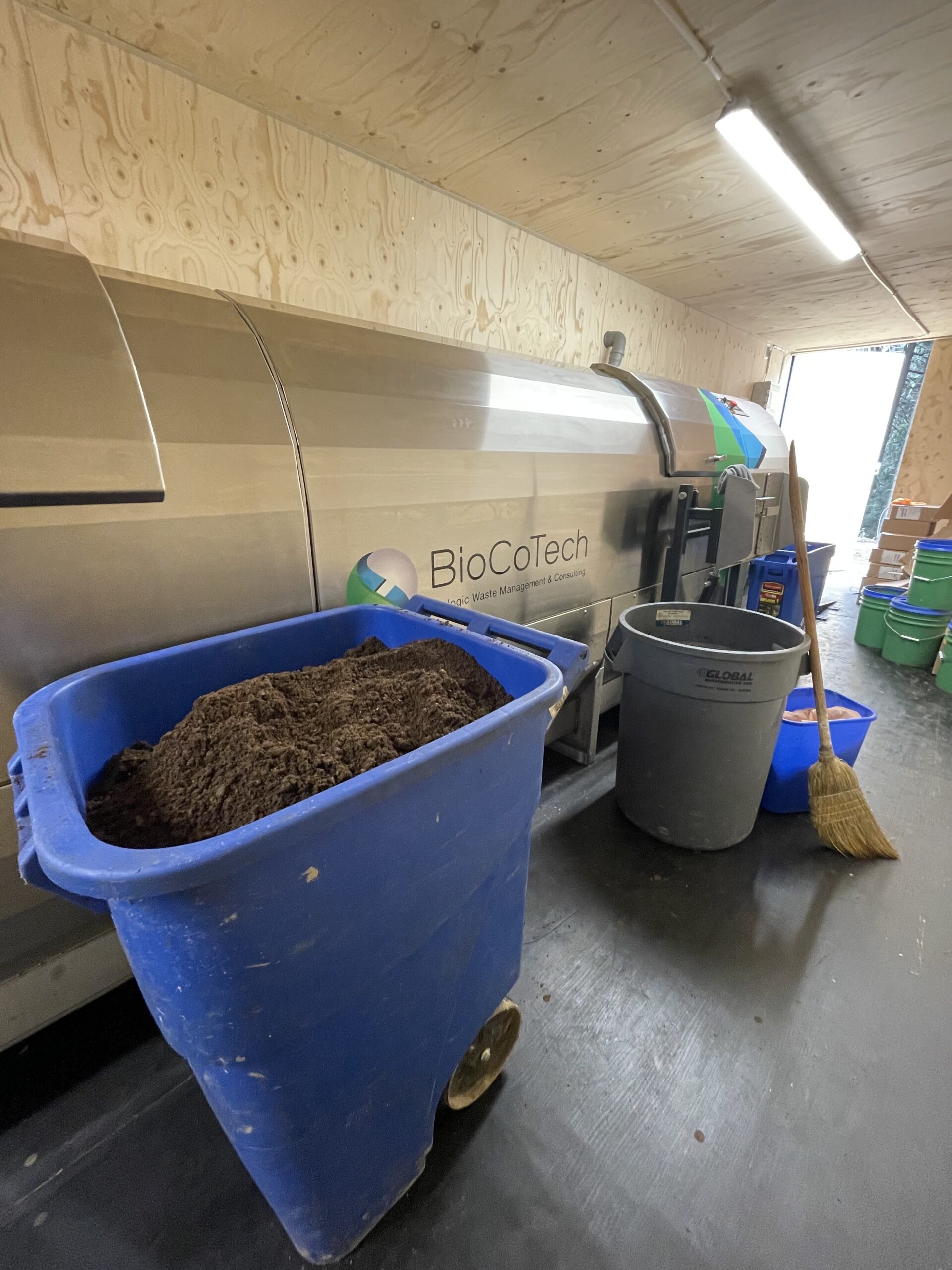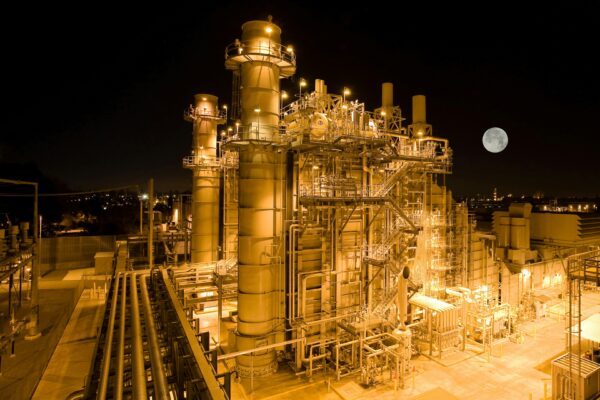California’s SB 1383: What It Means for Businesses in 2025 and How to Avoid Penalties
Introduction
California is entering a new era of environmental accountability, and 2025 marks a critical turning point. Senate Bill 1383 (SB 1383), the state’s landmark legislation targeting organic waste reduction and climate change, is moving from education and outreach into enforcement. For businesses across California, this means the window for preparation is closing fast — and penalties for non-compliance are becoming a reality.
If your business generates organic waste, now is the time to act. Whether you operate a grocery store, restaurant, hotel, resort, stadium, or university campus, understanding SB 1383 and taking proactive steps to comply is essential. In this article, we’ll break down the key elements of SB 1383, the penalties coming in 2025, and how BioCoTech Americas’ on-site composting technology can help your organization stay ahead of the curve — while saving money and cutting emissions.

Los Angeles County produces around 4,000 tons per day of food waste. (Credit Image: © Sarah Reingewirtz/Orange County Register via ZUMA Wire)
What Is SB 1383?
Senate Bill 1383 is a California law designed to reduce short-lived climate pollutants, particularly methane emissions from organic waste. Signed into law in 2016, the legislation sets ambitious targets:
-
75% reduction in organic waste disposal (from 2014 levels) by 2025
-
20% increase in edible food recovery by 2025
Methane is a potent greenhouse gas — over 80 times more powerful than carbon dioxide over a 20-year period. Landfills are one of the largest emitters of methane in California due to decomposing organic materials like food scraps, yard waste, and paper.
To tackle this, SB 1383 requires that all residents and businesses in California separate their organic waste from landfill-bound trash and ensure it is either composted, digested, or otherwise recycled.
What Happens in 2025? Penalties Begin
Until now, many cities and counties in California have prioritized education and technical assistance to help businesses transition. But starting in 2025, enforcement is scaling up — and penalties will apply.
Who Will Be Affected?
-
Commercial businesses that generate organic waste
-
Food service providers and distributors
-
Grocery stores and supermarkets
-
Hospitals and school campuses
-
Event venues, stadiums, and resorts
If your organization meets the threshold for organic waste generation (usually 2+ cubic yards of waste per week), you are required to subscribe to and participate in organic waste recycling services.
Types of Violations and Penalties
CalRecycle, the state agency overseeing SB 1383, has authorized local jurisdictions to enforce compliance. Penalties can range from:
-
$50 to $500 per violation per day for businesses
-
Increased monitoring and inspections
-
Loss of contracts or permits in severe or ongoing cases
These fines add up quickly — especially for large campuses, resorts, or food service operations with high volumes of waste. Worse, non-compliance can damage a company’s public reputation and environmental credibility.
Why Many Businesses Aren’t Ready
Despite the urgency, a surprising number of businesses are not yet compliant with SB 1383. Here’s why:
-
Lack of infrastructure: Some regions still have limited access to commercial composting facilities.
-
Inconsistent waste pickup services: Not all haulers are equipped to manage organic streams efficiently.
-
Cost concerns: Businesses worry that adding organic waste bins or services will drive up operational costs.
-
Operational complexity: It’s hard to train staff, create new systems, and maintain compliance without added workload.
This is where on-site composting technology can be a game changer — and where BioCoTech Americas steps in.
How BioCoTech Americas Helps Your Business Stay Compliant
BioCoTech Americas offers advanced, in-vessel composting machines that allow organizations to process their organic waste directly on-site. Our BioSpeed composting technology transforms food scraps and other organic materials into nutrient-rich compost in just days — without odors, pests, or high energy costs.

Key Benefits of BioSpeed Composting Technology:
On-Site Compliance: Eliminate dependency on third-party haulers or municipal composting facilities.
Avoid Penalties: Get ahead of SB 1383 enforcement with a compliant, traceable waste diversion solution.
Track Waste Reduction: Our dashboard and tracking tools let you monitor waste volumes, CO₂-equivalent avoided, and LEED contribution points.
Save on Hauling Costs: Reduce the frequency (and cost) of trash pickups by processing waste internally.
Circular Sustainability: Convert waste into compost for landscaping, gardens, or community donation — improving your carbon accounting and public image.
We’ve partnered with organizations like Microsoft, the Chase Center, Los Angeles International Airport, the University of Southern California, California State Universities, and many more — helping them divert thousands of pounds of food waste from landfills each month.
Case Study: On-Site Composting in Action
At Zion National Park, BioCoTech Americas installed a BioSpeed machine to handle organic waste generated at their visitor center, food concessions, and lodging facilities. The result?
-
Diverted over 100,000 pounds of food waste from landfill
-
Reduced methane emissions equivalent to taking 70+ cars off the road
-
Created compost that’s reused in local conservation projects
-
Enhanced the park’s sustainability messaging to visitors and stakeholders
This success story is now featured in national promotional videos and has inspired similar projects at other national parks and protected lands.
What’s the Cost of Doing Nothing?
Let’s break it down. A typical mid-sized business generating a few cubic yards of organic waste per week might face:
-
$200–$500/month in penalties
-
$1,000+ in added hauling and disposal costs
-
Damaged relationships with customers, regulators, or sustainability-focused investors
And none of that includes the cost to your brand. Today’s consumers and clients increasingly demand environmental responsibility from the companies they support.
In contrast, investing in on-site composting with BioCoTech pays for itself quickly — by eliminating hauling costs, reducing risk of fines, and improving sustainability outcomes.
How to Get Started with SB 1383 Compliance
Whether you’re already facing pressure from local enforcement or just starting your compliance journey, here’s how to move forward:
1. Conduct a Waste Audit
Understand how much organic waste your business produces, and what types (food scraps, paper, landscaping waste, etc.).
2. Explore On-Site Composting
Schedule a consultation with BioCoTech Americas to determine the right BioSpeed unit for your location and volume.
3. Create an Implementation Plan
Work with our team to design logistics, train staff, and set up the composting workflow. We’ll support you every step of the way.
4. Track, Report, and Optimize
Our systems help you monitor your progress, comply with reporting requirements, and optimize sustainability performance.
Final Thoughts: 2025 Is the Year of Action
SB 1383 isn’t going away — and in 2025, the state is finally bringing teeth to the legislation. For businesses, this presents both a risk and an opportunity.
You can choose to react to enforcement when it comes — or you can get ahead of the curve, avoid penalties, and build a stronger, greener operation that customers and communities admire.
At BioCoTech Americas, we’re here to help you comply, save, and lead in the fight against food waste and climate change.
Ready to Get Compliant?
📞 Call us today or book a free consultation at biocotechamericas.com to learn how we can help you comply with SB 1383 and turn your food waste into a resource.

